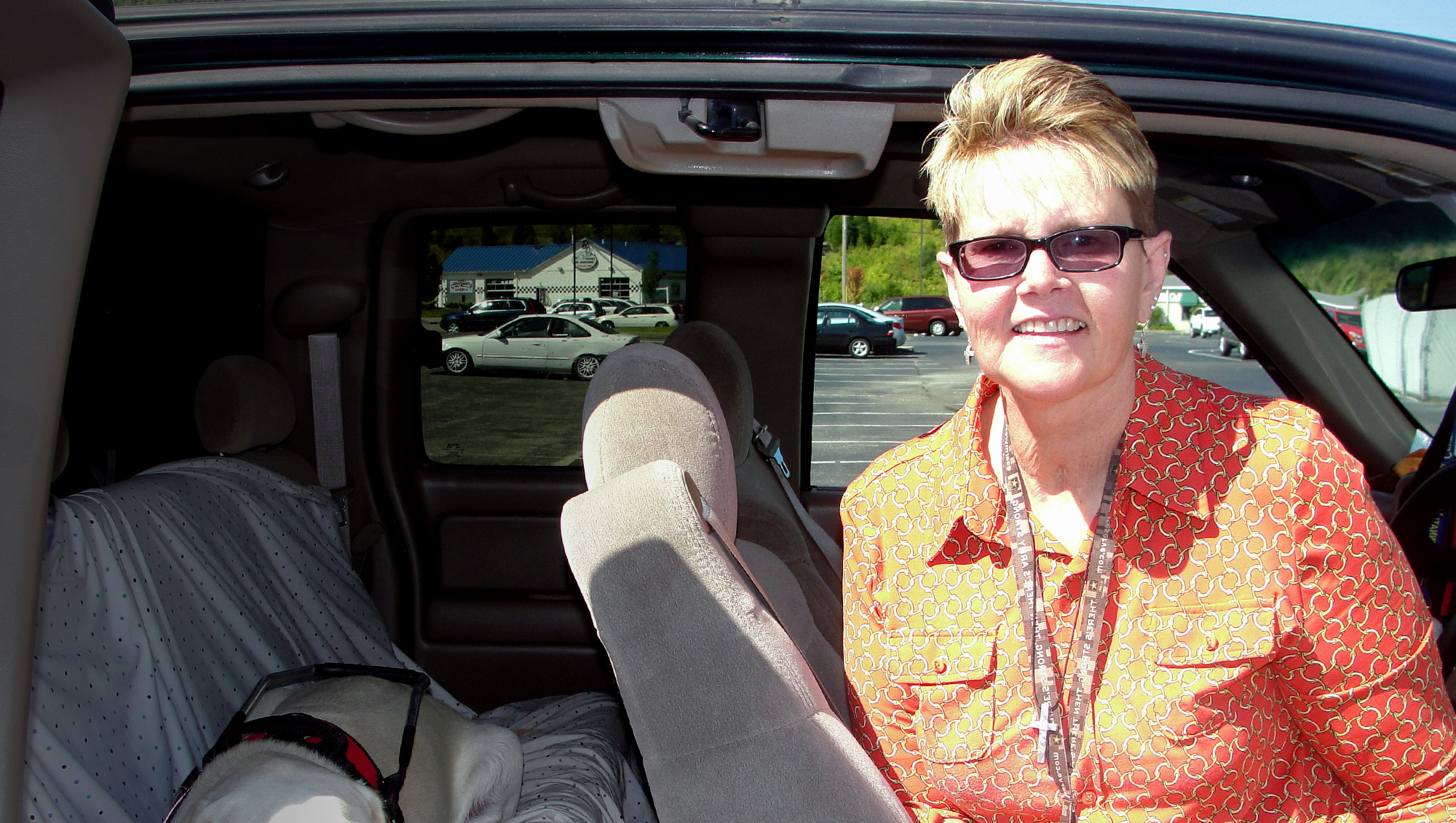With DRO’s Help, Veteran Returns to Work after VA Banished Her Service Dog
November 11, 2015 / service animals

Lisa Wilson and her service dog, Beau
Army veteran Lisa Wilson just wanted to go back to work. But her job with the veterans service organization Disabled American Veterans was located inside the VA Medical Center in Cincinnati, and the center had banished Wilson’s service dog, Beau, from the premises.
Beau is trained to help Wilson get up or to get help when she falls, to retrieve items, to provide balance and stability when she walks, and even to pull her in her manual wheelchair, thanks to a special harness. Wilson’s disabilities – partial paralysis and traumatic brain injury – make it unsafe for her to lead Beau on a leash, so the dog is outfitted with an electronic collar that Wilson has rarely had reason to use.
Shortly after beginning her work at Disabled American Veterans, the VA informed her of their policy that Beau would not be allowed in the hospital without a short leash. Explaining the situation did not change the VA's decision, so she complied with the request and started using a short leash, even though Beau was not trained to use one.
Beau then began to bark at some people. His barking got him banned from the VA Medical Center.
“No one ever asked me what I thought might have happened, why he barked,” Wilson says. “No one offered to work with me to come up with a solution. They just said he couldn’t be there.”
Without Beau, Wilson had no way to get around safely, so she lost her job, though Disabled American Veterans made it clear that she could return when the problem with the VA was resolved.
“The frustrating part for me was that not only could I not go to work, I was not allowed to come to the hospital for my own primary care,” Wilson explains. “That was very stressful. I had to start going to Louisville, Ky., for care, 90 miles away.”
Depressed and frustrated, she called Disability Rights Ohio for help.
Disability Rights Ohio Attorney Jason Boylan contacted the VA hospital multiple times in an attempt to work out a solution informally, but the VA refused to modify its leash policy or change its position toward Beau’s return. With the help of co-counsel John Marshall, DRO filed a complaint with the U.S. District Court, Southern District of Ohio. Under the pressure of this complaint, the VA eventually agreed to have Beau evaluated, which ultimately showed that he was not a threat.
“He did beautifully in his evaluation, as I always knew he would,” Wilson says.
More than a year and a half after Beau was banished from the VA hospital, the VA agreed to allow Lisa to return to the facility with her dog. They awarded her back pay for her time away from work and the cost of additional training for the dog, so he will be officially VA certified. She returned to work December 1, 2014.
“My main goal the whole time was to get back to work, and here I am,” she reflects. “I hope my story ends up helping other veterans. This problem is not just a Cincinnati or Ohio problem, it’s all over.”
Disability Rights Ohio assists veterans with disabilities and military families experiencing disability-related issues, including housing and employment, special education, accessibility and accommodations at work, college and public places.
If you, a family member or friend need assistance in any of these areas, contact our intake unit at 614-466-7264 or 800-282-9181, (TTY) 614-728-2553 or 800-858-3542, option 2, from 9 a.m. to noon and 1 p.m. to 4 p.m. weekdays. Callers can also leave a message 24 hours a day and someone from DRO will return their call.
